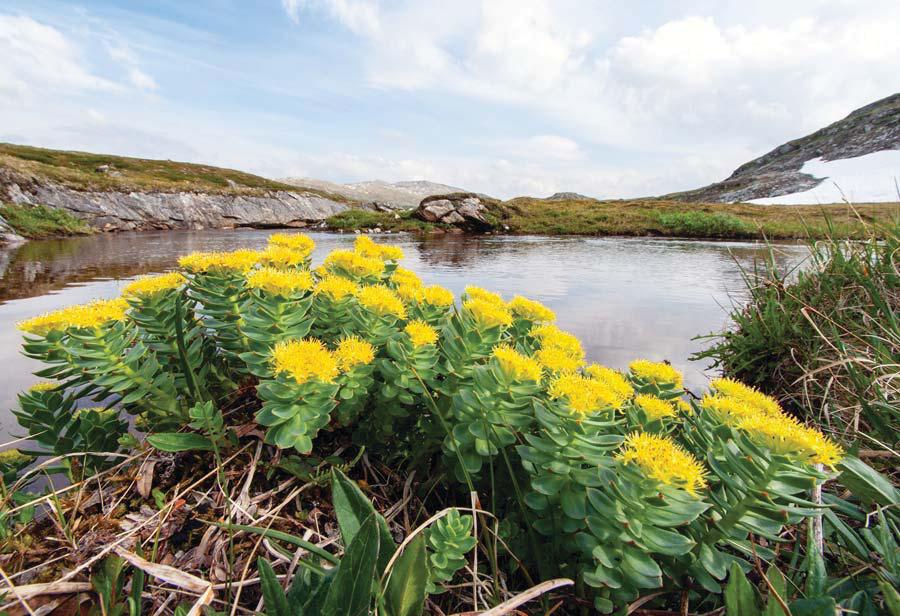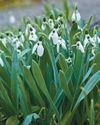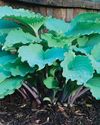
YOU MAY HAVE HEARD that where poison ivy grows, jewelweed (Impatiens capensis) is a remedy that will grow nearby. But do you know about Rhodiola rosea? In mountainous parts of the world with severe winters, where humans struggle with the fatigue of rarified air and susceptibility to colds and flu due to the icy weather, this member of the crassula family often grows nearby and offers them protection against the harsh climate. And it might do so for you as well, even at more clement altitudes.
Rhodiola rosea-also known as golden root, Sedum rosea and roseroot, among other names-is related to succulents like the jade plant (Crassula), Sedum, Dudleya, Kalanchoe and Echeveria. It's a tough little perennial growing only about a foot tall, with yellow to green flowers in May to July. It has evolved on alkaline soils in conditions of little rainfall, freezing temperatures and the searing actinic sunlight of high elevations. To protect itself, it produces large amounts of phenolic compounds and vitamin C, substances that also heal, invigorate and protect humans and animals.
JEFF COX is a longtime Horticulture writer who gardens in California. In 2023, his column focused on specimen plants for their beauty in the garden or landscape. This year, the attention turns to potent plants with medicinal properties that might be handy to grow at home-if you can find them. Some are common, others obscure, and still others may have been lost for thousands of years but now have seemingly been rediscovered. All of them are plants you'll be grateful to have if you need them.
ANCIENT AND WIDESPREAD
This story is from the January - February 2024 edition of Horticulture.
Start your 7-day Magzter GOLD free trial to access thousands of curated premium stories, and 9,000+ magazines and newspapers.
Already a subscriber ? Sign In
This story is from the January - February 2024 edition of Horticulture.
Start your 7-day Magzter GOLD free trial to access thousands of curated premium stories, and 9,000+ magazines and newspapers.
Already a subscriber? Sign In

Pot It Up
Shake up the containergarden with theseNorth America –native perennials

THE GARDEN PATH TO PERDITION
I WAS CRUISING RIGHT ALONG, feeling okay about myself, when I came across a list of the Seven Deadly Sins.

A Productive PATIO
Tiny fruit, vegetable and herb plants help gardeners maximize any sort of growing space

TROPICAL FUSION
A FUSS-FREE APPROACH TO USING BOLD TROPICAL PLANTS IN ANY TEMPERATE GARDEN

WINTER READING
Pass the time with any of these inspiring books

SENSING A PATTERN
Greg Coppa reflects on an odd weather year and what continued warming may mean for his Rhode Island garden

TOP-PRIZE PERENNIALS
A foliage masterpiece for shade and a late bloomer for sun

MARK WESSEL
What's new for fruit and vegetable gardeners?

KINGS OF THE NORTHERN FORESTS
A look at the trees, shrubs and perennial plants that bolster life in Ecoregion 5

PROJECT FEEDERWATCH
Gardeners can help scientists know just where the birds are in winter